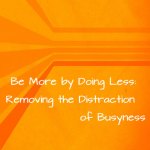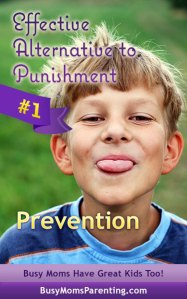By Ashley Ryan
 “It’s not enough to be busy. So are the ants. The question is: What are we busy about?” — Henry David Thoreau
“It’s not enough to be busy. So are the ants. The question is: What are we busy about?” — Henry David Thoreau
Growing up I didn’t think much of myself. I grew up poor, and spent much of my childhood alone. My father wasn’t around and my mother worked full-time, so I had to look out for myself from a very young age. This created emotional baggage, which I carried for many years.
Even though things started rocky, I was committed to myself and consciousness at an early age. I always felt like I knew there was something greater out there, but I wasn’t sure what.
Over the years I went to therapy, did courses and programs, and practiced being a better person. But the niggling issues from my childhood stayed with me like a shadow.
One way I coped with my baggage was by being very “busy.” Doing a million things. Distracting myself with a to-do list or activities that gave me a temporary boost, a few moments of joy, only to dissipate at night when I slowed down, lying in my bed wondering “Is this all there is?”
I was a master of disguise, and a master of distraction. And even though I was on a journey of self-awareness I often felt like a little girl again, alone and scared.
My real journey of healing began when a good friend suggested that I slow down. He pointed out that I was using distractions to run away from the loneliness that I was experiencing.
This resonated with me, and I decided to take on his advice.
I stopped activities, stopped traveling, stopped moving, stopped the texts and phone calls (I actually got rid of my phone), and committed to being with myself.
I didn’t know what this was going to take, or even look like, but I knew something had to change.
My real awakening began when I removed all distractions and sat with myself a little bit each day.
During this time of discovery I lived in India, which showed me that in our culture we rush and do all day long, we don’t often take a breather, or a rest.
And I think we do this — I think I did this — because I was running from myself. There were things I didn’t want to look at, issues that kept coming up over and over again, uncomfortable things that were safer to ignore.
Taking time to know myself was the most powerful process I’ve experienced, and being alone was the most authentic thing I’ve done.
My true inner journey began with the un-doing.
What I’m writing to you isn’t complex, it isn’t a whole bunch of stuff, but I think it’s enough.
A Simple Process for Un-Doing:
Spend some time journaling each day, starting by reflecting on the “distractions” in your life.
What activities or habits do you have/do to avoid being with yourself? Do you work way too much, or always help a friend or family member, which leaves you overwhelmed and busy? Do you eat and watch movies to distract yourself? Whatever it is, write it down.
Once you’ve written down your distractions, look deeper into the underlying belief behind these habits.
For example, you find that when you’re upset you eat sweets. Why do you eat sweets? To feel more full. Why do you want to feel fuller? Because I’m afraid of being alone. Why are you afraid of being alone? Because when I’m alone, I’m sad. Why are you sad? And so on… Weed out some of the underlying thoughts or beliefs behind your habits.
Notice.
You don’t have to fix, change, or improve anything. Just notice yourself when you’re engaging in these activities. Do this for one to two weeks. Bring awareness to these areas and journal about them.
After one to two weeks of noticing, if you feel inspired to do less or take action, such as stopping snacking or working fewer hours, go ahead, but it’s not required.
Add to your schedule some alone time each day doing nothing.
Sit on your couch, rest in your bed (without falling asleep), and be in nature. Add 10-30 minutes of alone time each day. If strong emotions come up, be with them; give yourself permission to feel.
The more time I spent by myself, the more I got to know who I was and what I was about. And when I learned about myself, I found I no longer needed to distract myself from the parts of myself that I didn’t like.

 I spent the majority of my life pretending to be someone I wasn’t.
I spent the majority of my life pretending to be someone I wasn’t.
You must be logged in to post a comment.